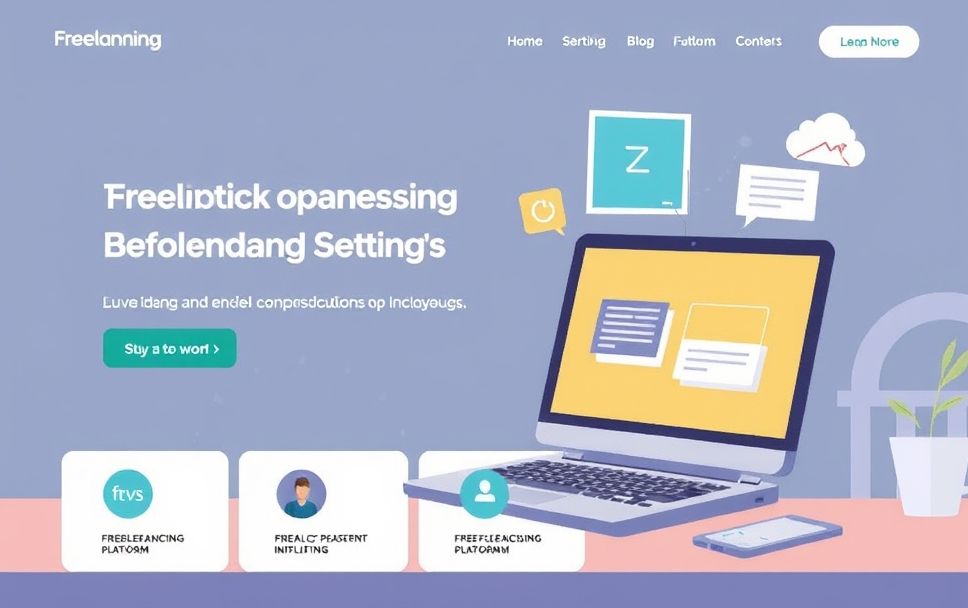Freelancing Platforms: The Ultimate Glossary Guide
In the rapidly evolving landscape of the internet, freelancing platforms have emerged as vital tools for professionals, particularly web developers, seeking flexible work opportunities. But what exactly are these platforms, and how can they benefit you? This comprehensive guide explores freelancing platforms in depth, unraveling their significance, functionality, and practical applications.
Definition of Freelancing Platforms
Freelancing platforms are online marketplaces that connect freelancers with clients seeking to hire for specific projects or tasks. They facilitate a wide range of services, from web development and graphic design to writing and marketing, allowing freelancers to showcase their skills and clients to find the right talent. These platforms typically provide tools for project management, payment processing, and communication, streamlining the hiring process.
The Significance of Freelancing Platforms
As the gig economy continues to grow, freelancing platforms play a crucial role in how work is structured today. They offer flexibility and autonomy to professionals, enabling them to work from anywhere and choose projects that align with their skills and interests. For web developers, this means access to a global client base, diverse projects, and the potential for higher earnings without the constraints of traditional employment.
Key Features of Freelancing Platforms
- Project Listings: Clients post job opportunities, outlining project requirements, budgets, and timelines.
- Freelancer Profiles: Freelancers create profiles showcasing their skills, experience, and portfolios to attract potential clients.
- Payment Systems: Secure payment processing ensures that freelancers get paid for their work, often through escrow systems.
- Communication Tools: Integrated messaging systems facilitate collaboration between freelancers and clients.
Popular Freelancing Platforms
Several freelancing platforms cater to different niches and industries. Here are a few popular ones:
| Platform | Best For |
|---|---|
| Upwork | General freelancing across various fields including web development. |
| Fiverr | Creative services and quick gigs, ideal for small projects. |
| Freelancer.com | Wide range of projects, from simple tasks to complex jobs. |
| Guru | Long-term projects and collaborations with a focus on professional services. |
Real-World Applications of Freelancing Platforms
Understanding how to use freelancing platforms effectively can significantly enhance your career as a web developer. Here are some practical applications:
- Building Your Portfolio: Use freelancing platforms to gather diverse projects that showcase your skills to potential employers.
- Networking: Connect with clients and other freelancers, expanding your professional network and opening doors to future opportunities.
- Setting Your Rates: Research prevailing rates on these platforms to help you price your services competitively.
- Skill Development: Engage in varied projects that challenge you and help you grow your technical abilities.
How to Get Started with Freelancing Platforms
If you’re ready to dive into the world of freelancing, here’s how to get started:
- Create a Strong Profile: Highlight your skills, experience, and include a portfolio that showcases your best work.
- Search for Relevant Projects: Use filters to find projects that match your expertise and interests.
- Submit Proposals: Craft personalized proposals that address the client’s needs and demonstrate your understanding of the project.
- Communicate Effectively: Maintain clear communication with clients throughout the project to ensure expectations are met.
Related Concepts
Freelancing platforms are part of a broader ecosystem of gig economy tools and concepts. Here are some related terms to explore:
- Gig Economy: A labor market characterized by short-term contracts and freelance work.
- Remote Work: Employment that allows individuals to work outside the traditional office environment.
- Portfolio: A collection of work samples that demonstrate a professional’s skills and capabilities.
- Project Management Tools: Software that helps organize and manage tasks, deadlines, and team collaboration.
Conclusion: Embrace the Freelancing Future
Freelancing platforms are not just a trend; they represent a fundamental shift in how work is conceived and executed in today’s digital economy. By leveraging these platforms, web developers can find rewarding opportunities, expand their skill sets, and enjoy the flexibility that comes with freelancing. As you embark on your freelancing journey, remember to build your profile, engage with clients, and continuously adapt to the ever-evolving landscape of online work.
Take the first step today by exploring freelancing platforms and discovering how they can transform your career!









